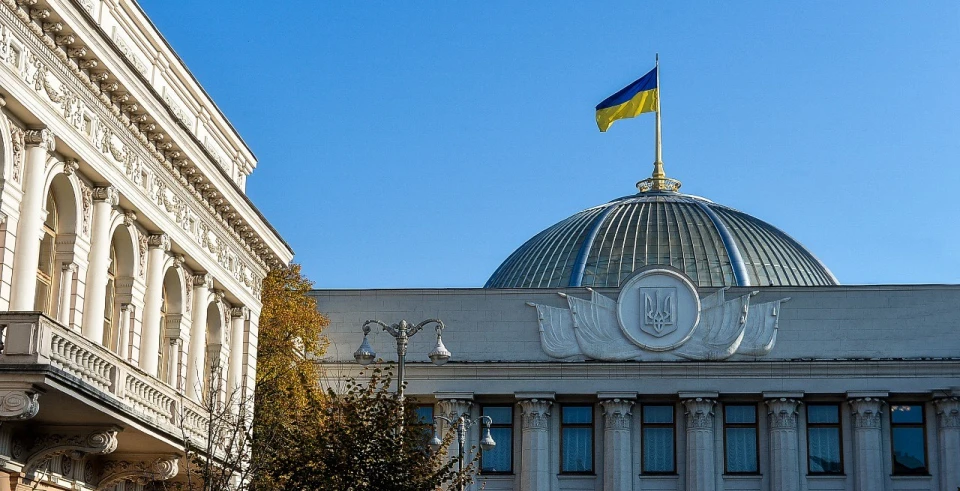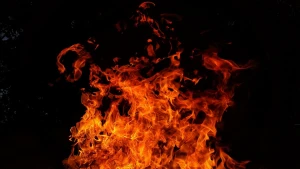
Ukraine's Verkhovna Rada approves ratification of Rome Statute
On Wednesday, August 21, the Ukrainian Parliament ratified the Rome Statute, the foundation of the International Criminal Court in The Hague
Ukrainian MP Yaroslav Zheleznyak shared the news.
A total of 281 MPs voted in favor of the decision.
Zheleznyak mentioned that before the vote, MPs received letters of support from the General Staff and the head of the Main Intelligence Directorate of the Ministry of Defense, Kyrylo Budanov.
"There was a tough discussion during the review. Many speeches were delivered both for and against," he added.
MP Pavlo Frolov clarified that the Parliament passed law 0285. He noted that for seven years, the International Criminal Court will not have jurisdiction over Ukrainian citizens concerning war crimes.
"Under the adopted law, Ukraine recognizes the jurisdiction of the International Criminal Court in The Hague over crimes against humanity, genocide, and war crimes starting from November 22, 2013, and the crime of aggression from July 17, 2018," Frolov wrote.
Ratifying the Rome Statute will allow Ukraine to gain full membership in the ICC, propose candidates for the election of judges and prosecutors, and participate in the Assembly of States Parties to the Rome Statute.
Ukraine signed the Rome Statute in 2000. To date, 123 countries have ratified it.
What is the Rome Statute
On July 17, 1998, at the UN diplomatic conference in Rome, 120 states agreed to establish the International Criminal Court (ICC) and signed the Rome Statute, which regulates its work, in particular, establishes the scope of activities, jurisdiction and structure of the court.
The ICC is authorized to investigate and prosecute international crimes committed in the territory of countries that have accepted its jurisdiction.
The Rome Statute establishes four primary international crimes: genocide, crimes against humanity (including systematic killings, torture, and abductions), war crimes (such as attacks on civilian infrastructure, humiliation of the enemy, and the denial of fair trials for prisoners of war), and crimes of aggression. During the negotiations, other crimes, such as ecocide, were also considered for inclusion.
The Rome Statute entered into force, and accordingly, the court in The Hague (Netherlands) began its work 4 years later, when the first 60 countries ratified the document.
As of November 2023, 137 states have signed the Rome Statute (Ukraine on January 20, 2000), but only 124 have ratified it. Ukraine became the 125th. There are states that have not only not ratified the statute, but have also withdrawn their signatures. In particular, the United States did so in 2002. President George W. Bush said that the ICC court threatened the US military and violated national sovereignty.
In 2016, Vladimir Putin issued a decree preventing Russia from ratifying the Rome Statute. This decision came after the International Criminal Court (ICC) prosecutor's office initiated a preliminary investigation into the situation in Ukraine following the events of 2014.
Supporters of the ratification of the Rome Statute in Ukraine emphasize that it is necessary to fully join the work of the International Criminal Court. In addition, the ratification of the Rome Statute is one of the conditions for Ukraine's further European integration, as all EU members are parties to the ICC.
Those who oppose it point out that the statute poses risks to the Ukrainian military and have suggested that its ratification be allowed only after martial law is lifted.
- Earlier, the Committee on Foreign Policy and International Cooperation of the Verkhovna Rada recommended that Parliament ratify the Rome Statute.
- Committee head Oleksandr Merezhko pointed out that this issue has a long history and has been thoroughly debated, allowing all arguments to be voiced. Regarding the concerns of Ukrainian Armed Forces soldiers over the ratification of the Rome Statute, Merezhko mentioned that certain safeguards are in place to protect them.
- On the other hand, Member of Parliament Iryna Herashchenko highlighted that the military had concerns about the timing of the Rome Statute’s ratification and criticized the government's communication efforts on the matter as a failure.
- News












































